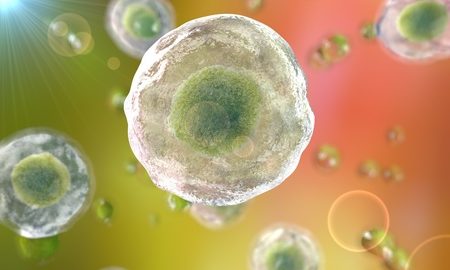Can Mesenchymal Stem Cell Infusion Improve Outcomes in Hematological Malignancies?

Researchers at Ankara University School of Medicine in Turkey are investigating whether an infusion of mesenchymal stem cells (MSCs) can improve outcomes in patients with hematological malignancies receiving haploidentical hematopoietic stem cell transplants.
Haploidentical Hematopoietic Stem Cell Transplantation
Approximately 50 percent of patients are not able to find HLA-matched donors (related or unrelated) for stem cell transplantation (SCT). In these patients, haploidentical hematopoietic SCT is an alternative strategy since haploidentical donors are more readily available. However, haploidentical SCT has historically been associated with a high rate of morbidity and mortality. Graft-versus-host-disease, rejection, and transplant-related deaths are the major drawbacks of this treatment strategy, although T-cell depletion methods and administration of mega doses have addressed these problems to some extent. Nonetheless, high relapse rates and prolonged immunodeficiency continue to be problems and there is a need to develop new cell therapies to improve outcomes in haploidentical transplants.
New Study for Hematological Malignancies
The researchers at Ankara University are attempting to judge the efficacy of mesenchymal stem cells in the prevention and treatment of GVHD in recipients of haploidentical transplants for hematological malignancies. The study is an interventional open-label single group assessment and has enrolled 40 adult patients of both sexes. There are no healthy volunteers accepted into the study. To be included in the study, the patient must have a diagnosis of a hematological malignancy with an indication for a haploidentical hematopoietic stem cell transplant and no contraindications to transplantation.
Mesenchymal Stem Cells for Graft-Versus-Host Disease
The MSCs will be isolated from the donor bone marrow and infused into the recipient on day +6 following the SCT conditioning regiment. It is hoped that MSC infusion will improve outcomes. Improved success of haploidentical transplants can address the problem of finding HLA-matched donors for patients with hematological malignancies. Haploidentical donors (children or parents) are easily accessible and patients benefit from reduced waiting times. The overall survival over a timeframe of 36 months and the effect of MSC infusion on the incidence of GVHD and graft failure will be measured. The study is expected to be completed in October 2017.
References:
- https://clinicaltrials.gov/ct2/show/NCT03106662?term=stem+cells&sfpd_s=01%2F01%2F2017&sfpd_e=10%2F19%2F2017&draw=1&rank=2
- https://www.hindawi.com/journals/bmr/2011/303487/


